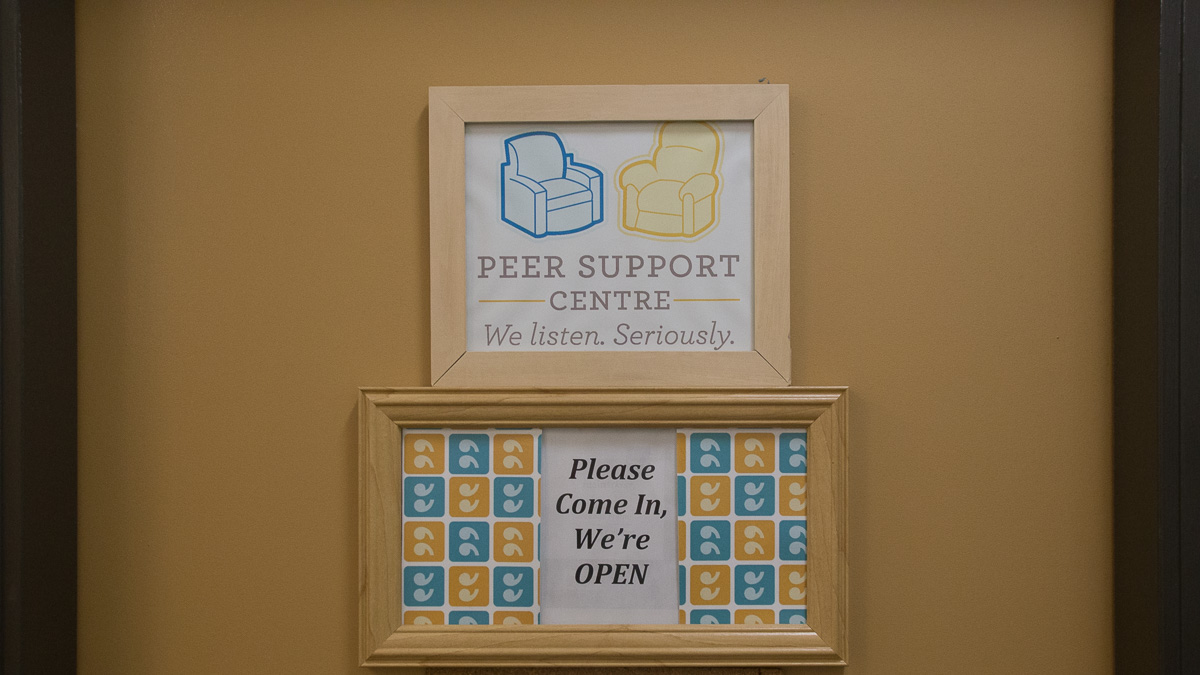 Joshua Storie
Joshua StorieNearly everything is back in person again. As a result, many students are struggling to adjust to the old way of doing things. After being online for so long, in-person exams, in-class group work, and class discussions can be stressful for new and old students.
As a student who recently took her first in-person psychology midterm since the pandemic first hit, I can vouch that I struggled with exam anxiety before and after the exam. I am still trying to bounce back to what some would call a regular routine after being online for two years.
The University of Alberta Students’ Union (UASU) helps alleviate some of these struggles by providing mental health resources, such as the Peer Support Centre (PSC). Without resources like the PSC, students are unable to access the help they need.
Emotional well-being is a constant struggle many people feel they have to face on their own, often without the support and courage to discuss it with their loved ones. As a result, mental health institutions are vital in providing support and creating a safe place for those struggling with their mental health.
There has been an increased demand for mental health services on an international scale. Beyond struggles associated with the pandemic, students are facing other difficult situations that may impact their mental health, such as food insecurity, rent increases, and tuition increases.
The PSC offers a variety of resources to students that can help with their mental health, like walk-in appointments. They also provide further resources to assist in students’ mental health journeys.
In an interview with Joannie Fogue, UASU vice-president (student life), she said that even before COVID-19, the PSC saw a rise in demand.
“I don’t think [COVID-19] is the only reason, but even before then we did see an increase in [demand for] mental health resources, services, and programming,” Fogue said.
However, the PSC recently had to reduce its hours, greatly affecting students’ ability to access support. As a result, students’ mental health will be negatively impacted. Especially when they are still recovering from the prolonged effects of the pandemic.
Fogue said that the PSC has reduced its hours because they have seen a major drop in the number of new volunteers. Additionally, they’ve seen a massive turnover amongst their senior volunteers. Historically, the PSC had 75 volunteers, but now they’re down to 53, Fogue said in October.
The PSC’s current hours are 9 a.m. to 5 p.m. on Monday, Wednesday, and Friday. For Tuesday and Thursday, they’re open from 9 a.m. to 7 p.m.. In the past, the operating hours were 9 a.m. to 8 p.m. Monday through Friday, according to Fogue. These hours will stay for the remainder of the winter term.
Generally, mental health facilities, both at the U of A and elsewhere, are not always properly funded — despite criticism that systems are overloaded.
Mental health facilities are expensive and often out of the way. So, students have no choice but to go to the ones on campus, which are more accessible.
According to Fogue, there will be no more volunteer recruitments for the PSC until August and the beginning of September of 2023.
This is because the PSC volunteers receive extensive training, and it is only feasible for them to do one training period a year. Students also typically don’t have the capacity for the required training throughout the school year, said Fogue.
Like us, PSC volunteers are also students with commitments, classes, and assignments. They may not always have the time to provide their services to other students in need. As a result, the PSC struggles to find volunteers who can donate their time, on top of having volunteers who are already busy.
Although, there are other resources available at the U of A if students need counseling, with many geared towards specific groups on campus. These resources include Counseling and Clinical Services, First Peoples’ House, International Student Services, and The Landing. So, even though the PSC reduced their hours, there are still some options left for students on campus.
In addition, there is less stigma around the topic and people are more openly-ready to talk about mental health.
Reducing the hours of the PSC is detrimental to the mental health of students — no one knows when a person may need mental health support. Mental health supports need to be accessible. It is important for the window to receive such help to be as wide as possible.
However, as the saying goes, “all good things take time,” and for our sake, I hope the wait is worth it.




